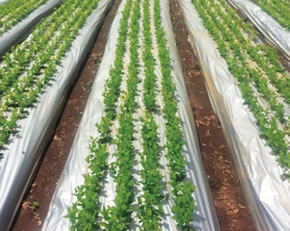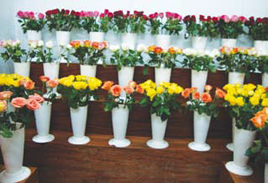Linking Retail And Wholesale Consumer Markets Globally
 Dutch Flower Group Africa is all about linking Retail and Wholesale consumer markets, all over the Globe,with flower growers in Africa.Being the supply chain partner for overseas DFG companies, the Nairobi based DFG Africa organisation aims to develop long term sustainable relationships in the chain and fosters transparent partnership with growers.
Dutch Flower Group Africa is all about linking Retail and Wholesale consumer markets, all over the Globe,with flower growers in Africa.Being the supply chain partner for overseas DFG companies, the Nairobi based DFG Africa organisation aims to develop long term sustainable relationships in the chain and fosters transparent partnership with growers.
DFG Africa facilitates the process of supplying the best possible flower product to the consumer, and the DFG companies use our local presence to cooperate with the growers in Africa, so to make use of each other’s best practices and fulfill the needs and requirements of the customers abroad.
Our Philosophy and Model is managed by an experienced, focused, well trained team of professionals – covering areas of Supply Chain, Consumables and Technical Support, so to ensure that fresh flower products from Africa are delivered on time against contract specifications agreed.
DFG Africa stands for:


 The two certification standards for flowers and plants agree cooperation. MPS and GLOBALG.A.P. have announced their agreement to work together and offer a synchronized certification solution for the horticultural sector.
The two certification standards for flowers and plants agree cooperation. MPS and GLOBALG.A.P. have announced their agreement to work together and offer a synchronized certification solution for the horticultural sector. Cold chain management in cut flower supply chains is now of major importance due to markets which are far apart. A research carried showed possible ways to realise the added value of investing in cut flower cold supply chains.
Cold chain management in cut flower supply chains is now of major importance due to markets which are far apart. A research carried showed possible ways to realise the added value of investing in cut flower cold supply chains. Cold chain logistics requires maintaining temperature integrity, controlling all the processes involved means high levels of integration and coordination. Each supply chain partner— from harvester or producer to the ultimate seller—shares responsibility. For example, cold chain transportation units are commonly designed to keep ambient temperature constant, but not to bring a shipment to the optimal temperature. But if a shipment is not adequately prepared and conditioned, its quality may be compromised.
Cold chain logistics requires maintaining temperature integrity, controlling all the processes involved means high levels of integration and coordination. Each supply chain partner— from harvester or producer to the ultimate seller—shares responsibility. For example, cold chain transportation units are commonly designed to keep ambient temperature constant, but not to bring a shipment to the optimal temperature. But if a shipment is not adequately prepared and conditioned, its quality may be compromised.